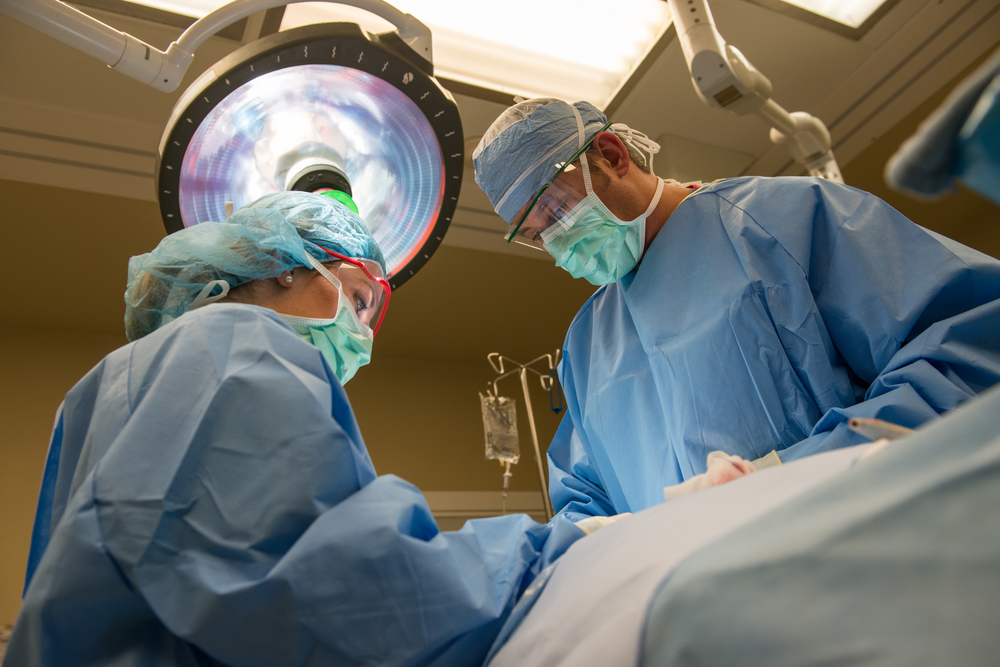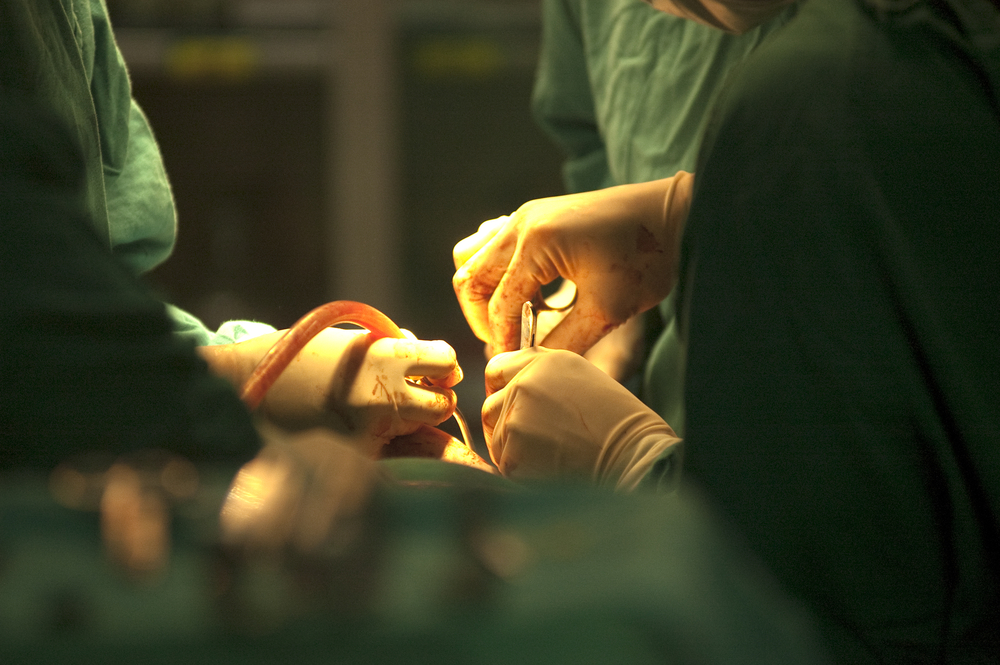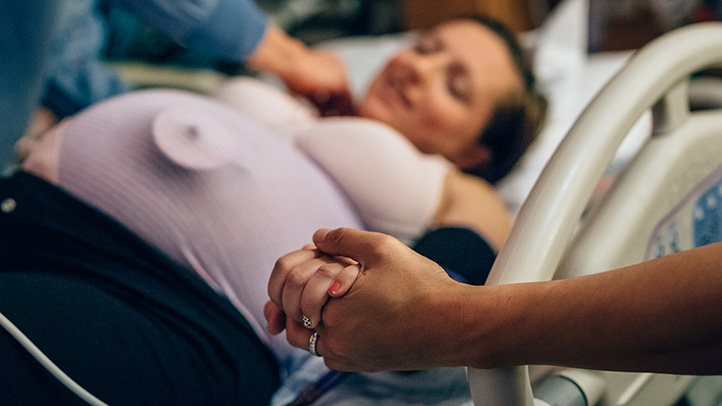Contents:
- Medical Video: How Getting Colon Cancer at 21 Changes Everything
- Colon cancer surgery with polypectomy and local excision
- What is colectomy?
- What needs to be considered when going for colon cancer surgery?
- Before running the operation
- After running the operation
- Can this operation be done at any time?
- Surgery for the spread of colon cancer
- Side effects of colon cancer surgery
Medical Video: How Getting Colon Cancer at 21 Changes Everything
Surgery is often the main treatment method to cure colon cancer in the early stages. The operation itself consists of several types. Check out information about colon cancer surgery below.
Colon cancer surgery with polypectomy and local excision
When diagnosed with colon cancer at an early stage, your doctor may recommend cancer removal. Some early colon cancer (stage 0 and some early stage tumors) or polyps will usually be cleaned and removed through a colonoscopy.
Unlike surgery in general, where the surgeon must make an incision in the abdomen, the colonoscopy procedure does not require a large incision in the abdomen. While undergoing a colonoscopy procedure for colon cancer, there are two surgical procedures that can be performed at the same time, namely polypectomy and local excision.
In a polypectomy procedure, the cancer is removed as part of the polyp, which is cut on the trunk (an area resembling a mushroom stem). Meanwhile, local excision removes remnants of cancer and a small amount of tissue nearby.
What is colectomy?
In addition to the two procedures above, another procedure for treating colon cancer is colectomy. Colectomy is an operation to remove all or part of the large intestine organ. Lifting is also done on the nearest lymph node.
If only a portion of the large intestine is removed, this procedure is called hemicolectomy, partial colectomy, or segmentation resection. If the removal is done throughout the large intestine, this procedure is called total colectomy. Usually, total colectomy is not done to treat colon cancer. This operation is only used if there is a disease in the large intestine that is not attacked by cancer, such as the appearance of hundreds of polyps (to someone with familial adenomatous polyposis) or, sometimes, inflammatory bowel disease.
Colectomy is divided into two. The first is an open colectomy, if done through a single incision in the abdomen. While the second is laparoscopic colectomy. This procedure is done using a laparoscopy, which is a thin hose equipped with lights and a small camera at the end.
Laparoscopy can be inserted through a small incision and allows the surgeon to see the inside of the abdomen and be able to lift the large intestine and lymph nodes. The incision in the laparoscopic procedure is smaller than the incision in the colectomy.
The laparoscopic procedure allows patients to recover and get out of the hospital faster than if they had open colon cancer surgery. However, a surgeon who is truly trained is required to carry out this operation. If you decide to go through this procedure, be sure to look for an expert surgeon who has laparoscopic experience.
What needs to be considered when going for colon cancer surgery?
Before running the operation
One day before undergoing colon cancer surgery, you will most likely be asked to drain the stool in the intestine and empty it. You can take laxatives to help you empty the intestines. You need to know too, surgery for colon cancer will be done with general anesthesia for patients.
In a partial colectomy, the surgeon will remove a portion of the large intestine that is attacked by cancer and a small portion of the normal large intestine on each side that has cancer. Usually, the large intestine that is removed will range from ¼ to ⅓ parts depending on the size and location of the cancer.
Along with the removal of a portion of the large intestine, the surrounding lymph nodes will also be removed. Most experts find it important to remove as many lymph nodes as possible, but at least 12 lymph nodes must be removed. After the procedure for removal and removal of cancer is over, another part of your large intestine will be attached back to the body.
After running the operation
When you wake up after surgery, you will feel pain and may need pain medication for two or three days. For the first few days, you will be given intravenous (IV) fluids or infusions as your nutritional intake.
During this time, you might not be able to eat. You may be allowed to consume fluids, but in limited quantities because your large intestine needs time for recovery. Most patients are able to return to eating solid food after a few days.
Can this operation be done at any time?
Colon cancer surgery is a type of major surgery. That is why it is important for you to be in the best condition, even though in some cases this operation is urgent and must be done immediately. For example, when your tumor has large size and clogs your large intestine.
When you have a large tumor that clogs the intestines, the intestines that are supposed to do peristalsis cannot function. This makes the movement in the intestine stop and become lost. As a result, patients can feel nausea, vomiting, and severe abdominal pain.
Under these conditions the doctor may use a colonoscope to place stent in your large intestine. Stent is a hose made of plastic or metal. This hollow hose will help keep your intestine open and have a way so that the blockage formed can be temporarily overcome, while preparing for surgical removal a few days later. That way, dirt can still come out of your body.
If stent cannot be planted in a blocked large intestine or a tumor has caused a hole in the large intestine, surgery to make a way out of the dirt may need to be carried out immediately. This operation is similar to cancer removal surgery. However, the large intestine is not attached to the other large intestine, but is attached to the opening (stoma) on the skin of the stomach so that dirt can be removed from the body. This procedure is called a colostomy and is temporary.
Besides the large intestine, sometimes the small intestine (ileum) can also be connected to the stoma. This method is called anileostomy. Both will make you have a bag that is attached to the stoma to hold the dirt.
After your condition improves, another operation called a reversal colostomy or reversal ileostomy can be done to reattach the ends of the large intestine or attach the small intestine to the large intestine. Although rare, in conditions where the tumor cannot be removed and installedstentnor can it be done, a colostomy or an ileostomy may have to be permanent.
Surgery for the spread of colon cancer
If the cancer has spread to several points in the lungs or liver, and not in other parts, surgery is often taken to remove it. This is done only if the cancer in the large intestine has been removed. The decision to carry out this operation and removal of the organ that is the spread of cancer can be taken taking into account the size, number and location of the cancer.This operation can help you live longer or even recover from your illness, but you still have to remember the severity of the disease.
Side effects of colon cancer surgery
The possibility of side effects of colon cancer surgery depends on several factors, including the level of difficulty of the operation and the general health condition of the patient before surgery. Most people will experience post-operative pain, but can usually be treated with medication if necessary. Meanwhile, eating disorders that usually appear will also improve within a few days after surgery.
Other problems can include bleeding from surgery, blood clots in the legs, and damage to the closest tissue during surgery. In rare cases, the procedure of attaching the ends of the intestine does not occur properly so that it does not fully attach and causes leakage which causes infection.
Another possible side effect is the possibility of reopening the abdominal incision, causing open sores. After surgery, scar tissue may form which causes organs or tissues to stick together. This condition is called bowel adhesion. In some cases, adhesions can clog the intestines, so further surgery is needed. It's best to consult with a doctor who treats you when you find symptoms that are worrying when you are finished operating.
Hello Health Group does not provide medical advice, diagnosis or treatment.













